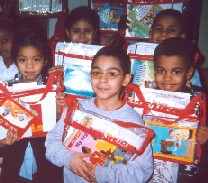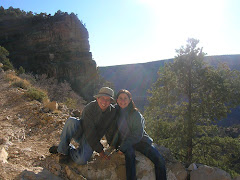In addition to all the formal events, I also got to know Rabbi Bachman as a very intelligent, thoughtful, and caring family man. I was delighted to have stumbled upon his blog recently, it's rare that you get some insight into the thoughts of a religious leader.
Here I present to you his piece on Christmas Day. For those of you not from NYC, there's a very common New York experience that happens on Christmas Day -- Chinese Food!
Many non-Christians - most commonly Jewish and Chinese folks - end up going out for Chinese food and then maybe catch a movie. As a Catholic who celebrates Christmas on Christmas Eve and Midnight I was able to participate in this inter-cultural/inter-faith experience on occasion.
Rabbi Bachman and his family now participate in a similar event (minus the movies and plus a Christmas service). Read on:
Indulge in Making Peace
The first step was the Chinese Food. “Two?” said the hostess at the entrance but I heard, “Jew?” And why not? One quick look around the restaurant indicated that the two tribes most represented last night were the Judeans and the Cantonese.
“Where are all these people from, serving us the Chinese food?” my five year old asked. It suddenly occurred to her that there was a discernible pattern at work. That there was a relationship between the people and the food. A cultural-anthropological moment to behold!
“They’re Chinese,” I said. “The come from China, the largest country on Earth. We’re Jews, and we are among the smallest nations on Earth. But on Christmas we come together since neither of us really celebrate Christmas.” (Too complicated to explain that there are Chinese Christians. We’re dealing in broad strokes, cultural tropes. Nuance can come a bit later.)
We eat, share the meal with friends, and then head out.
Just like last year, we stop at one of the churches in the neighborhood. Baby Jesus is missing from the Nativity scene.
“Where’s Jesus?” one of my kids asks.
“Maybe the church puts him out in the manger at Midnight,” I offered.
They’re used to asking questions about ritual settings, I think, pondering the Seder table’s set-up for the Four Questions.
We head over to Old First Reformed Church, where my friend Rev. Daniel Meeter is nursing the same wicked upper respiratory infection I had last week. Despite his ailing state, he looks great in a tuxedo and black robe. He came to us on Yom Kippur. We go to him on his holy day. That’s what friends are for.
“Thank you for coming, brother,” he says. And then is off to his procession. My kids grab candles and take their seats to listen to the music, a beautiful collection of hymns and melodies they don’t hear in Shul but nonetheless represent our neighbors’ best efforts at reaching God on their terms, in their language.
The candlelight service is a great touch. It’s very effective ritual theater. We Jews do a candlelight service once a year as well–on Tisha B’Av, to commemorate the destruction of the Temple in Jerusalem. I think back to last summer, in Jerusalem, where we sat on the ground overlooking the Old City and listened to Lamentations sung in Hebrew while holding candles. A Yahrzeit candle of mourning representing one new light of hope. Always intertwined for us Jews–mourning and renewal.
Back to the Church. The service is alternating expression of text and song. Each hymn illuminating in some form the prior words read from Scripture. One of our congregants read from the end of the Sacrifice of Isaac, a devotional reading that for Jews is about the struggle and promise of faith; and for Christians is about representative of the promise of Jesus. The Hebrew was chanted beautifully. My kids shot up and followed along, beaming with pride. The ecumenicalism of the moment seemed to work.
I imagined earlier sages visiting Churches, experiencing the wonder of other nations seeking God and having the confidence to appreciate that when done right, religion can be a great, unifying force in the world.
For me the climax of the service was hearing Gloria in Excelsius Deo, a classic hymn from the early church still sung today. “Glory to God in the highest” ring its words and I thought, “that’s right. In the highest. Beyond the reach of hatred; beyond the reach of division; beyond the reach of suicide bombers and fanatical martyrs; beyond the reach of those who would take the branch from the Tree of Life and destroy all that is good in what we ultimately strive for, in the highest: blessing and peace.
Afterwards, we go for ice cream. One of us orders Mint Chip; another orders Chocolate Chocolate Chip. A third orders Dolce du Leche. Each of us have ordered double flavors. What a rich and indulgent night. We hurry the kids home. In the morning we will go deliver toys to some less fortunate kids who are celebrating their holiday at a free meal. Even to give is an indulgence in blessing.
And I find the symmetry. Our personal lives are completely Jewish. We keep Shabbat. Our kitchen is kosher. We travel to Israel as a family. And, in our broader neighborhood, we respect and appreciate the paths others take to find blessing and peace.
What a rich and indulgent life.
To indulge in making peace where there is strife.





